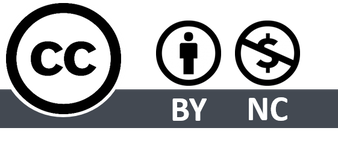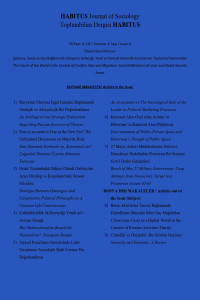Öz
How do some states push harder to become more powerful and to have more voice in regional and global matters, although it is widely known that there are some unethical sides of those power-seekers. In current times, states like the Russian Federation, have explained their warlike actions (Georgia in 2008, Syria starting from 2012 and Ukraine starting from 2013 that has turned into a full-scale bloody conflict today), with some legal democratic principles based on their ‘fair elections’ and with the power they derived democratically from their own people. There can be lots of answers to give to the main question on nations’ power-seeking historically, politically or sociologically; however, in this article, our exploration will be more on political theory and philosophy which takes the “majoritarian rule” to our center. We seek to answer whether we must fear or not to fear from the powers of the so called elections’-based majorities in some states considering the gaps of democratic theory overall. Our answer will be a bit cautious regarding the future. Thus, after examining the critical views on the defects of the majority-rule that can lead the ‘majoritarian tyranny’, we will look also to the ideas of the supporters of the majoritarian procedures who are against any limitations including constitutions with the fear of ‘minority tyranny’. The main idea throughout all the dilemmas of the article will be in line with the fact that any excessive situation in a democratic system can lead to problematic consequences, as we see today in several conflicts and in the forced migrations of millions of people from their homelands.
Anahtar Kelimeler
Teşekkür
Thank you Yavuz Hocam, and all Editorial Board of HABITUS Journal. Regards,
Kaynakça
- Archibugi, D., Held, D. (2012). Cosmopolitan Democracy: Paths and Ways, Il Politico, 77, 3(231), 13-31.
- Bellamy, R. (1999). Liberalism and Pluralism:Towards a Politics of Compromise, Routledge.
- Bobbio, N. (1987). The Future of Democracy: A Defence of the Rules of the Game, University of Minnesota Press.
- Bobbio, N. (1990). Liberalism and Democracy, Verso.
- Cohen, J. (2002). Deliberation and Democratic Legitimacy, D. Estlund (Ed.), In Democracy (87-106), Blackwell.
Öz
Bazı devletler, etik dışı yanları bulundukları yaygın olarak bilinmekle birlikte, güçlü olmak ve bölgesel ve küresel meselelerde daha fazla söz sahibi olmak için nasıl çokça çaba sarf edebiliyorlar? İçinde bulunduğumuz dönemde Rusya Federasyonu gibi devletler, geçmişte ve günümüzde devam eden savaş niteliğindeki eylemlerini (2008'de Gürcistan, 2012'de Suriye ve 2013'te başlayan ve bugün geniş çaplı kanlı bir çatışmaya dönüşen Ukrayna’daki gibi), iç politikalarında ‘adil seçimleri’ gibi demokratik surette kendi halklarından aldıkları yasal güce dayandırmaktadır. Milletlerin iktidar arayışları konusundaki temel soruya, tarihsel, siyasi ya da sosyolojik olarak verilecek pek çok cevap olabilir; ancak bu makalede araştırmamız, daha çok “çoğunluk yönetimi” kavramını merkeze alan siyaset teorisi ve felsefesi alanlarında olacaktır. Genel olarak demokratik teorinin boşluklarını göz önünde bulundurarak, bazı devletlerde sözde ‘seçimlere dayalı çoğunlukların’ bu yolla elde ettiği güçlerinden neden korkmamız veya neden korkmamamızı cevaplamaya çalışacağız. Cevabımız gelecekle ilgili biraz temkinli olacaktır. Bu nedenle, çoğunluk kuralının 'çoğunlukçu tiranlığa' yol açabilecek kusurları hakkındaki eleştirel görüşleri inceledikten sonra, 'azınlık tiranlığı' korkusuyla, anayasalar dâhil her türlü sınırlamaya karşı olan çoğunlukçu prosedürlerin destekçilerinin fikirlerine de bakacağız. Makalenin tüm bu ikilemlerindeki ana fikir, günümüzde birçok çatışmada ve milyonlarca insanın kendi ülkelerinden zorla göç ettirilmesinde gördüğümüz gibi, demokratik bir sistemdeki herhangi bir aşırı durumun sorunlu sonuçlara yol açabileceği gerçeği doğrultusunda olacaktır.
Anahtar Kelimeler
Majoritarian Rule Democracies Minorities Tyranny Russia Çoğunluk Yönetimi Demokrasiler Azınlıklar Tiranlık Rusya.
Kaynakça
- Archibugi, D., Held, D. (2012). Cosmopolitan Democracy: Paths and Ways, Il Politico, 77, 3(231), 13-31.
- Bellamy, R. (1999). Liberalism and Pluralism:Towards a Politics of Compromise, Routledge.
- Bobbio, N. (1987). The Future of Democracy: A Defence of the Rules of the Game, University of Minnesota Press.
- Bobbio, N. (1990). Liberalism and Democracy, Verso.
- Cohen, J. (2002). Deliberation and Democratic Legitimacy, D. Estlund (Ed.), In Democracy (87-106), Blackwell.
Ayrıntılar
| Birincil Dil | İngilizce |
|---|---|
| Konular | Sosyoloji |
| Bölüm | Derlemeler |
| Yazarlar | |
| Yayımlanma Tarihi | 30 Mart 2023 |
| Yayımlandığı Sayı | Yıl 2023 Cilt: 4 Sayı: 4 |



